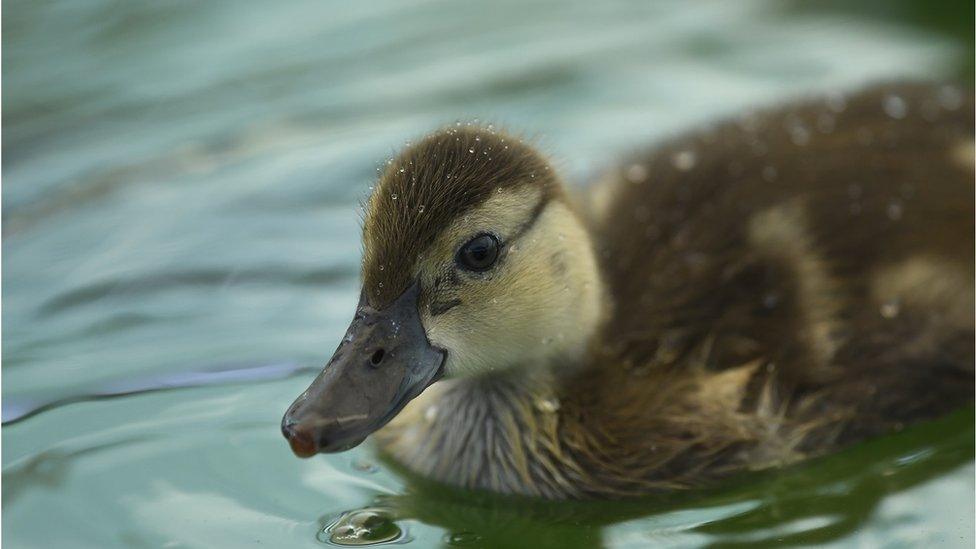Madagascar Pochards: History made as world’s rarest bird released into the wild
- Published

Meet one of the world's rarest birds - a Madagascar pochard. They are ducks, and for 15 years, experts thought they were extinct. Now a new approach is trying to boost their numbers.
They've been brought back from the brink and are being given a new home on a remote lake in Madagascar. 21 Madagascar pochards spent a week in the safety of the world’s first floating aviaries on Lake Sofia in the north of the country.
Experts from Durrell Wildlife Conservation Trust, the Wildfowl & Wetlands Trust, The Peregrine Fund and the Government of Madagascar have spent years getting ready for the birds to be introduced.
Pochards eat plants and seeds, snails, small fish and insects. With a wild population of just 25, this duck may be the rarest bird on the planet.
Madagascar pochards spend almost all their time on water and, importantly, feed underwater. For this reason, a plan was conceived to convert Scottish salmon-farming cages into the world’s first floating aviaries.
The birds need wetlands to thrive and many of those areas in northern Madagascar are "severely degraded" according to the WWT. The recent release of the ducks at Lake Sofia is part of a long-term plan to restore these wetlands.
Other floating equipment – feeding stations and rafts to hang out on – have also been specially designed and installed on the lake to give the birds the best possible chance of survival.
The birds, which hatched in October, spent a week in aviaries on the lake, before they were released. This was to allow the birds to get used to their new surroundings, increasing the chances that they will stay their after release.
- Published8 December 2018
- Published27 April 2012
